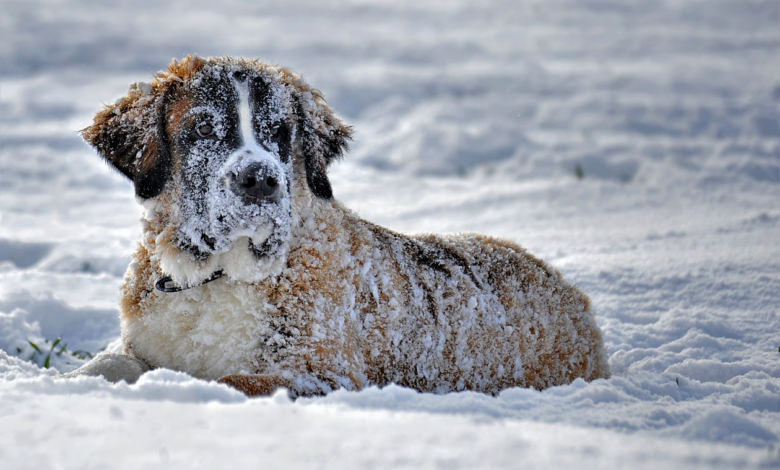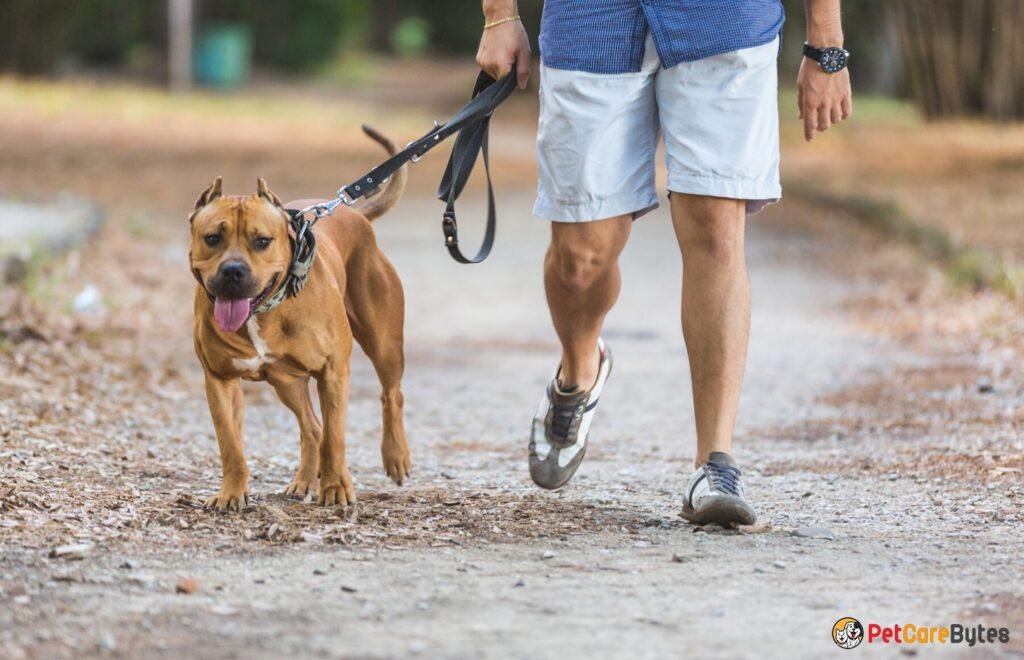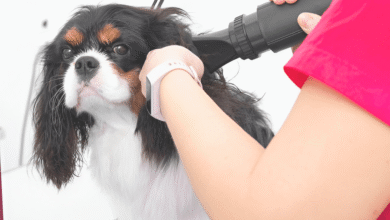
Winter Pet Care for Senior Animals
Winter is a magical season, bringing snow-covered landscapes and cozy evenings by the fireplace. While it’s a delightful time for many, it poses unique challenges for our furry friends, especially the seniors among them. In this article, we’ll explore the essential aspects of winter pet care, with a special focus on the needs of our senior companions.
Read More: Winter Pet Activities: 10 Tips To Enjoy the Cool Season
Understanding Senior Pet Needs

As our pets age, they encounter various challenges, including arthritis, diminished mobility, and a reduced ability to regulate body temperature. Senior animals are more sensitive to the cold, making it imperative to tailor our care routines to their specific requirements.
Creating a Warm and Cozy Environment
Imagine the comfort of a warm blanket on a chilly day – now, extend that comfort to your senior pet. Whether they primarily reside indoors or have outdoor access, providing adequate shelter is crucial. Consider investing in pet-friendly heating solutions, such as heated beds, to ensure your senior pet remains snug and warm.
Adjusting Nutrition for Winter
Winter demands adjustments in our pets’ diets, particularly for seniors. Opt for senior-specific diets that support joint health and overall well-being. Additionally, pay extra attention to hydration, as pets may not be as inclined to drink water in colder weather.
Protecting Paws and Skin
Winter walks can be harsh on a pet’s paws. To prevent discomfort, moisturize their paw pads with pet-safe balms. When navigating icy pathways, choose ice melt products that are safe for pets to avoid irritation and potential toxicity.
Regular Exercise Indoors
Cold weather may limit outdoor activities, but that doesn’t mean your senior pet should lead a sedentary lifestyle. Engage them in low-impact exercises, such as gentle indoor fetch or interactive toys, to keep their bodies and minds active.
Grooming Tips for Winter

The dry air of winter can lead to skin issues for pets, and seniors are particularly susceptible. Manage dry skin by adjusting bathing frequency based on your pet’s needs. Additionally, use pet-friendly moisturizers to combat the effects of winter dryness.
Veterinary Check-ups
Before winter sets in, schedule a comprehensive vet visit for your senior pet. This serves as a pre-winter health assessment, allowing the vet to address any existing health concerns or chronic conditions. Proactive veterinary care ensures your senior pet is in the best possible health to face the challenges of the colder season.
Clothing for Senior Pets
Investing in the right attire for your senior pet can make a substantial difference in their winter comfort. Choose clothing that provides warmth without restricting movement. Pay attention to signs of discomfort, such as restlessness or attempts to remove the clothing, and make necessary adjustments.
Safety Concerns: Indoor and Outdoor

Winter brings its own set of safety concerns for pets. Pet-proof your home by removing potential hazards and ensuring indoor spaces are warm and safe. During walks, keep your senior pet on a leash to prevent slips on icy surfaces and to avoid encounters with potentially harmful substances.
Social Interaction and Mental Well-being
Companionship is vital for senior pets. Spend quality time with them, engaging in activities they enjoy. Introduce new toys or puzzle feeders to provide mental stimulation, keeping their minds active and healthy.
Emergency Preparedness
Prepare for unexpected situations by creating a winter emergency kit for your senior pet. Include essentials such as blankets, medications, and a first aid kit. Familiarize yourself with signs of distress and know how to respond promptly in case of an emergency.
Common Winter Health Issues in Senior Pets

Be proactive in managing common winter health issues that affect senior pets, such as arthritis. Consult your veterinarian for appropriate medications or supplements to keep your senior pet comfortable during the colder months. Additionally, pay attention to respiratory health, as cold air can exacerbate existing conditions.
Myths and Facts About Winter Pet Care
Let’s debunk some common misconceptions about winter pet care. Contrary to popular belief, not all dogs need booties for winter walks, and pets still require ample water intake, even in colder weather. By separating fact from fiction, you can provide the best care for your senior pet.
Conclusion
Winter pet care for senior animals demands thoughtful consideration and proactive measures. By creating a warm environment, adjusting nutrition, protecting paws, and addressing specific health concerns, you can ensure your senior pet enjoys a comfortable and happy winter. Remember, a little extra care goes a long way in ensuring your furry companion’s well-being.
Read More: Winterize Your Pet
FAQs
- Can I use regular ice melt on my driveway if my senior pet walks there?
- It’s best to opt for pet-safe ice melt to avoid any harm to your senior pet’s paws.
- How often should I groom my senior pet in winter?
- Adjust grooming frequency based on your pet’s needs, but be mindful of dry winter skin.
- Are winter jackets necessary for senior pets?
- Depending on your pet’s breed and sensitivity to cold, a winter jacket can provide added warmth.
- Should I adjust my senior pet’s diet during winter?
- Consider a winter-specific diet that supports joint health and ensures adequate hydration.
- What signs indicate that my senior pet is uncomfortable in winter attire?
- Watch for signs like restlessness, excessive scratching, or attempts to remove the clothing.








One Comment